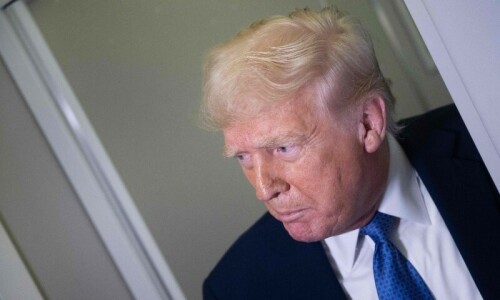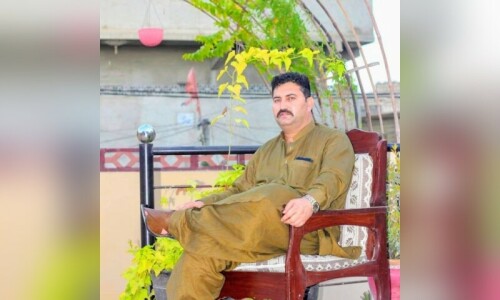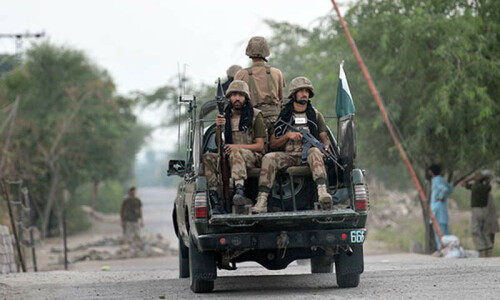Prime Minister Imran Khan stressed on Tuesday the need to end the "illicit flow of money from poor countries to rich capitals, to tax havens, to haven destinations", which he said was "crushing the people in the developing world".
Addressing the 15th UN Conference on Trade and Development via a video link, PM Imran cited data by the UN's Financial Accountability, Transparency and Integrity for Achieving the 2030 Agenda (FACTI) Panel and said $7 trillion was parked in tax havens around the world. The premier lamented that annually, $1tr was transferred from the developing world to tax havens, and held the "corrupt ruling elites of the developing world" responsible for the "plunder".
"This a huge crisis and this is going to get worse" in the coming years, he warned.
Emphasising that this illegal flow of money must be stopped, the prime minister said that the only way to go about it was to implement the recommendations made by the FACTI Panel in this regard.
He added that it was unfortunate that rich countries, which were in the position to curb the practice, were doing little on this front for reasons he identified as a lack of motivation and absence of incentives.
PM Imran explained that the continuing illegal outflow of money from poor countries was increasing difficulties for their populations because it led to the devaluation of currencies, followed by a rise in inflation and eventually, increased poverty.
The prime minister warned that the impact of the illegal practice, however, would not be limited to poor nations.
"What you are seeing today are economic migrants, people are dying to get to richer countries," he said, adding that if the trend continued, the gap between rich and poor nations would widen and eventually, the former would have to "build walls to keep out the hoards of economic migrants".
He urged that measures be taken to end this "injustice" to the developing world.
The prime minister's statement comes in the wake of Pandora Papers, which have exposed secret fortunes of prominent individuals across the globe. It is based on a leak of confidential records of 14 offshore service providers that give professional services to wealthy individuals and corporations seeking to incorporate shell companies, trusts, foundations and other entities in low- or no-tax jurisdictions.
Over 700 Pakistanis have been named in the leaks, including key members of PM Imran's inner circle, including cabinet ministers, their families, political allies and major financial backers, who owned an array of companies and trusts holding millions of dollars of hidden wealth.
Minutes after the exposé was made public on Sunday, PM Imran had announced that his government would investigate all citizens named in the report.
"We welcome the Pandora Papers exposing the ill-gotten wealth of elites, accumulated through tax evasion & corruption & laundered out to financial 'havens'," the premier had tweeted. "My government will investigate all our citizens mentioned in the Pandora Papers and if any wrongdoing is established we will take appropriate action. I call on the international community to treat this grave injustice as similar to the climate change crisis."
The following day, he had set up a "high-level cell" to investigate the Pakistani individuals named in the report.
Announcing the establishment of the cell, Federal Information Minister Fawad Chaudhry had tweeted that the investigation cell, formed under the Prime Minister's Inspection Commission, would "question all individuals that are part of Pandora Leaks and facts will be placed before the nation".
Meanwhile, Minister of State for Information and Broadcasting Farrukh Habib had said the cell would determine whether public office holders had declared their foreign assets.
"If not, a corruption case will be referred to the National Accountability Bureau. In case of money laundering, the case will go to the Federal Investigation Agency," he had said, adding that that for non-public officeholders, a tax evasion case would be forwarded to the Federal Board of Revenue.
During his address on Tuesday, PM Imran also called for the equitable distribution of Covid-19 vaccine among rich and poor countries, measures to ensure developing nations were given debt relief and rich countries contributing to climate finance, particularly to reduce the impact of climate change on poor countries.
















































